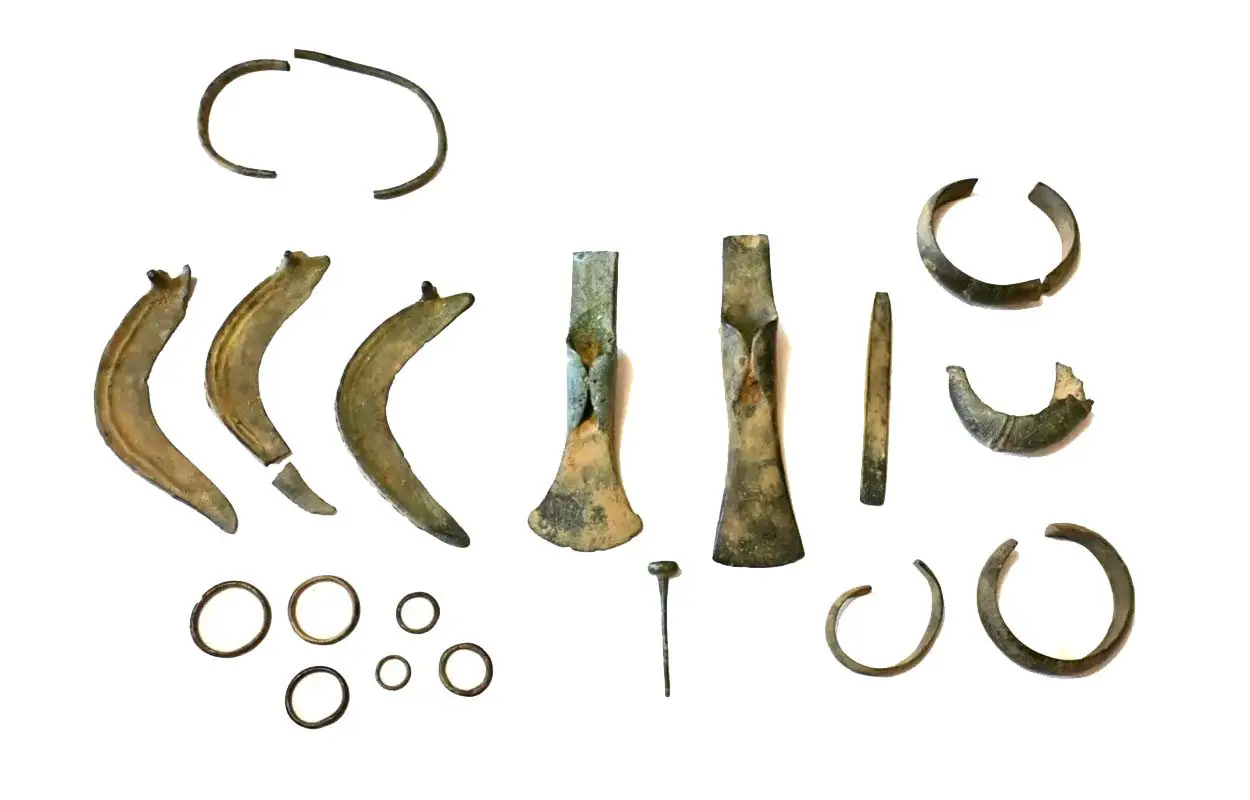Metal detectorists from the Drossen Lubuskie Association have discovered a Bronze Age deposit near the Polish town of Słubice.
The group were conducting a survey (with permission from the Lubusz Provincial Conservator of Monuments), when they uncovered a scattered deposit of Bronze Age objects and notified the Provincial Office for the Protection of Monuments in Gorzów Wielkopolski.
Using a metal detector in Poland requires a permit granted by the Provincial Conservator of Monuments in accordance with the Act of July 23, 2003 on the protection and care of monuments.
The deposit of bronze objects consists of three sickles, two axes, four bracelets, six rings, a fragment of a pin, and a rod section. Alongside the objects are traces of foundry waste, providing evidence of bronzesmithing in the region.
According to the Marshal’s Office of the Lubuskie Voivodeship, the discovery has similarities to a previous discovery in the vicinity of Gubin, which is associated with the Lusatian Urnfield culture from 1000 to 800 BC.
The emergence of the Lusatian culture coincided with the Trzciniec culture, which was influenced by the Tumulus culture of the Middle Bronze Age, effectively integrating local communities into a socio-political network during the Late Bronze Age / Early Iron Age.
During this period, bronze materials and objects were highly valued, and bronze makers often hid such objects during times of conflict or to prevent theft. There is also the possibility of a ritualist nature behind the deposit, as Bronze Age communities had a tradition of depositing objects as votive offerings.
Header Image Credit : LWKZ
Sources : Lubuskie Voivodeship – Marshal’s Office of the Lubuskie Voivodeship







